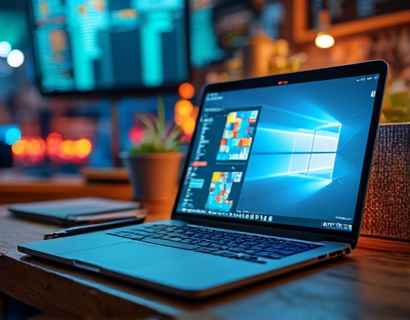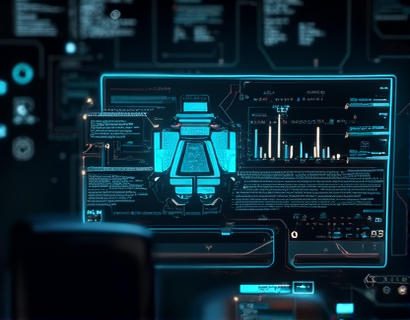Decentralized File Management: Elevate Team Collaboration with a Secure and Efficient Online Platform
In the rapidly evolving landscape of business operations, the need for secure and efficient file management has become paramount. Traditional centralized file management systems often fall short in terms of security, accessibility, and collaboration. This is where decentralized file management emerges as a transformative solution, offering a robust framework that not only secures vital data but also enhances team collaboration and productivity. This article delves into the benefits and functionalities of a decentralized online platform designed to redefine how businesses and teams manage and share files.
Understanding Decentralized File Management
Decentralized file management refers to a system where data is stored and managed across a network of computers rather than in a single centralized location. This approach leverages blockchain technology and distributed ledger systems to ensure that files are not only securely stored but also easily accessible to authorized users. Unlike traditional centralized systems, decentralized platforms eliminate the risk of a single point of failure, making them more resilient to cyber attacks and data breaches.
The core principle of decentralization lies in its ability to distribute control and data across multiple nodes. This distribution ensures that no single entity has complete control over the network, thereby enhancing security and reducing the risk of data manipulation. In a decentralized file management system, files are encrypted and fragmented, with each fragment stored on different nodes. This fragmentation means that even if one node is compromised, the entire file remains safe as it is reconstructed from the remaining fragments.
Enhanced Security Measures
Security is a top priority in any file management system, especially for businesses handling sensitive information. Decentralized platforms employ advanced cryptographic techniques to ensure that data remains confidential and intact. Each file is encrypted using strong encryption algorithms, and access is granted only to authorized users through a secure authentication process. This dual-layer security approach significantly reduces the risk of unauthorized access and data breaches.
Moreover, decentralized systems often utilize blockchain technology to create an immutable record of all file transactions. This means that any attempt to alter or tamper with a file will be immediately detected and rejected by the network. The transparency and traceability provided by blockchain ensure that all actions are logged and verifiable, adding an extra layer of security and trust to the system.
Improved Accessibility and Collaboration
One of the most significant advantages of decentralized file management is the enhanced accessibility it provides. Team members can access files from anywhere in the world, at any time, as long as they have an internet connection. This global accessibility is particularly beneficial for remote teams and organizations with multiple locations, as it eliminates the need for cumbersome file transfer processes and ensures that everyone is working with the most up-to-date version of a file.
Collaboration is greatly improved in a decentralized environment. Multiple users can simultaneously work on the same file without the risk of overwriting each other's changes. The system tracks all edits and maintains a version history, allowing team members to see the changes made by others and revert to previous versions if necessary. This real-time collaboration not only speeds up the workflow but also fosters a more cohesive and productive team environment.
Streamlined Workflow and Increased Productivity
The efficiency of a decentralized file management system translates directly into increased productivity for businesses and teams. By eliminating the need for manual file synchronization and version control, teams can focus on their core tasks without being bogged down by administrative overhead. The automated processes within the system ensure that files are always up-to-date and accessible, reducing the time spent on locating and retrieving documents.
Additionally, the user-friendly interface of decentralized platforms makes it easy for users to navigate and manage files. Intuitive dashboards and search functionalities allow team members to quickly find the information they need, further streamlining the workflow. This ease of use encourages more frequent and effective use of the file management system, leading to higher overall productivity.
Cost Efficiency and Scalability
Decentralized file management systems offer significant cost savings compared to traditional centralized solutions. By reducing the need for expensive hardware and maintenance, organizations can lower their IT expenses. The cloud-based nature of these platforms also means that scalability is seamless, allowing businesses to easily adjust their storage capacity based on their evolving needs without incurring additional infrastructure costs.
Furthermore, the reduced risk of data loss and the enhanced security features mean that organizations can avoid the costly repercussions of data breaches and loss. This cost efficiency, combined with the peace of mind that comes from robust security, makes decentralized file management an attractive option for businesses of all sizes.
Case Studies and Real-World Applications
Several organizations across various industries have successfully implemented decentralized file management systems, reaping the benefits of enhanced security, collaboration, and efficiency. For instance, a global software development company reported a 30% increase in project completion speed after migrating to a decentralized file management platform. The real-time collaboration features allowed developers to work seamlessly on code repositories, reducing the time spent on merging and conflict resolution.
In the healthcare sector, a network of hospitals adopted a decentralized file management system to securely share patient records across different locations. The system's encryption and access control mechanisms ensured that sensitive patient data remained confidential while providing doctors and nurses with instant access to critical information. This not only improved patient care but also streamlined administrative processes.
Future Trends and Innovations
The future of decentralized file management is promising, with ongoing advancements in blockchain technology and distributed systems continuing to enhance the capabilities of these platforms. One area of focus is the integration of artificial intelligence (AI) to further automate file management tasks, such as intelligent file organization and predictive access control. AI can analyze usage patterns and automatically optimize file storage and retrieval processes, making the system even more efficient.
Another exciting development is the incorporation of Web3 technologies, which build upon blockchain principles to create more interactive and user-centric applications. Web3-enhanced file management platforms could offer features like decentralized identity verification and smart contracts, providing even greater security and automation.
Conclusion
Decentralized file management represents a significant leap forward in how businesses and teams handle their data. By offering enhanced security, improved accessibility, and increased productivity, these platforms are poised to redefine the future of file management. As more organizations recognize the benefits of decentralization, the adoption of these innovative solutions is likely to grow, leading to a more secure and collaborative business environment.











































